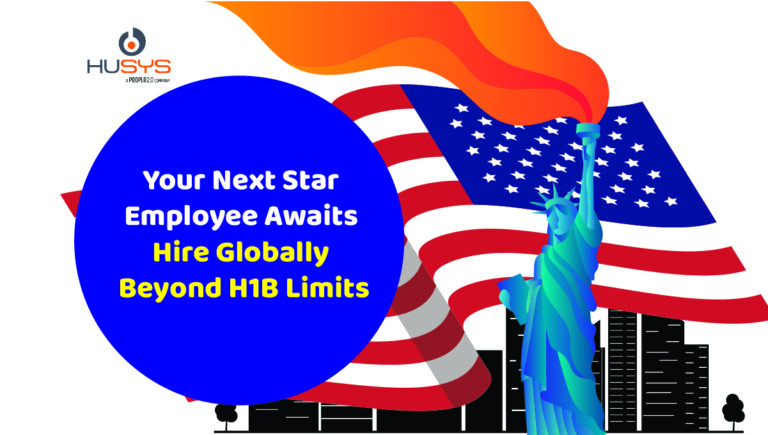Workforce planning is essential for companies entering new markets or expanding operations in 2024. But what insights of HR can guide business expansion and employee success as we look ahead to the coming year?
It is worth noting that in today’s fast-changing business landscape, HRs cannot just focus on compensation and compliance. They must maintain an inclusive and diverse culture while creating a modern benefits package that appeals to the newest generation. And this is what we’ll explore in detail!
Whether you are in the middle of preparing HR initiatives for 2024 or looking for a fresh start, this blog is for you. We’ll focus on areas where HR leaders must provide strategic guidance to drive growth and performance.
Support Business Expansion Into New Markets
To support expansion efforts, HR leaders must proactively address the challenges of entering new markets. This involves a comprehensive understanding of the unique complexities associated with each new market, including local labor laws, regulations, cultural nuances, and language barriers.
HRs should provide guidance on best practices for recruitment, onboarding, and training to rapidly ramp up new teams. For instance, cross-cultural training will help employees succeed in diverse markets. HR insights can also inform go-to-market localization strategies, ensuring alignment between business goals and people capabilities.
Market a Modern Benefits Package
With the rise of Generation Z and evolving expectations among employees, HR leaders must adapt and promote benefits that align with these shifting paradigms. Consider in-demand benefits like remote work options, paid time off, parental leave, flexible schedules, career development programs, and more.
According to a study, over half of the Gen Z workforce prefers to work remotely. In fact, 70% of Gen Z employees will likely look for another job if their employer requires them to be in the office full-time.
The same report indicates that 67% of Gen Zers want to work at companies where they can learn new skills to advance their careers. Therefore, HRs must incorporate employee development into their benefits packages to attract top talent.
Stay Abreast of Compliance Issues
One of the key insights of HR in 2024 is to stay compliant with ever-evolving laws and regulations. Keeping abreast of compliance issues is a focus area that directly impacts an organization’s ability to expand successfully. These laws can vary significantly from country to country, covering areas such as employment contracts, working hours, and leave policies.
Given the complexity of global compliance issues, HR leaders often find it beneficial to collaborate with external experts, such as legal counsel or global Professional Employer Organizations (PEOs) and Employers of Record (EORs). These partners specialize in navigating compliance intricacies in various regions, providing invaluable support in ensuring the organization’s expansion efforts comply with local laws.
Develop Cross-Cultural Competence
Global expansion often means recruiting, managing, and collaborating with employees from various cultural backgrounds. HR leaders must embrace and celebrate this diversity as a valuable asset rather than a challenge. Recognizing the unique perspectives, communication styles, and work behaviors of employees from different cultures is a fundamental starting point.
HR leaders should prioritize cultural sensitivity training for employees and managers to bridge cultural gaps and promote effective cross-cultural communication. These training programs help individuals navigate potential misunderstandings and conflicts due to cultural differences. It also enhances empathy and intercultural competence within the workforce.
Expand Your Business Without Settingup Any Entity in 150+ Locations

Invest in Employee Well-being and Mental Health
Employee well-being encompasses physical, mental, and emotional health. HR leaders need to recognize that well-being isn’t a luxury but a fundamental aspect of an engaged, productive, and satisfied workforce. It directly affects employees’ ability to adapt to new environments and contribute effectively to global expansion.
Well-being programs tailored to the needs of employees during global expansion can have a profound impact. These programs may include stress management workshops, access to counseling services, mindfulness training, and resources to maintain physical health while working abroad.
Embrace Technology and Analytics
Embracing technological advancements and data-driven insights can greatly enhance HR’s ability to manage international operations. Modern HR software solutions streamline administrative tasks, such as payroll, benefits administration, and employee record management. These tools save time, reduce errors, and provide a centralized platform for managing HR functions across borders.
HR leaders can also harness the power of artificial intelligence (AI) and machine learning (ML) to improve talent acquisition. These technologies can analyze vast amounts of data to identify top candidates, predict future talent needs, and even automate initial screening processes, making global recruitment more efficient and data driven.
Prepare for Crisis Management and Business Continuity
Global expansion presents its own set of challenges and uncertainties, making crisis management and business continuity planning essential for HR leaders. Preparing for unexpected disruptions is crucial to ensure global operations continue smoothly and minimize potential setbacks. This includes preparing for political instability, natural disasters, cybersecurity breaches, and health crises (as evidenced by the COVID-19 pandemic).
On the other hand, business continuity planning involves defining critical functions, identifying backup systems, and outlining communication strategies to keep employees informed during a crisis. Also, these plans should be regularly tested through simulations and drills to identify areas of improvement. HR leaders should ensure that plans are flexible and adaptable to changing circumstances.
Getting Granular: A Deep Dive into Talent Acquisition Metrics Analysis
Invest in Sustainable HR Practices
Sustainable HR practices are essential for building a positive brand image, attracting top talent, and ensuring long-term success in international markets. HR leaders can initiate environmentally responsible practices within the workplace, such as reducing paper usage, promoting energy efficiency, and adopting recycling programs. These efforts contribute to sustainability goals and often result in cost savings.
Additionally, HR leaders can reduce the organization’s carbon footprint by encouraging sustainable commuting options for employees, promoting telecommuting and remote work, and supporting initiatives to reduce business travel when possible.
Wrapping Up
Companies that tap into the strategic foresight of HR will gain a sustainable competitive advantage. HR professionals can lead organizations into a new era of expansion, progress, and prosperity by developing integrated people strategies, nurturing an empowering culture, and leveraging technology. These visions and insights of HR will define the world of work for years to come.
Ready to implement these strategies? Let us know if you have any questions!




